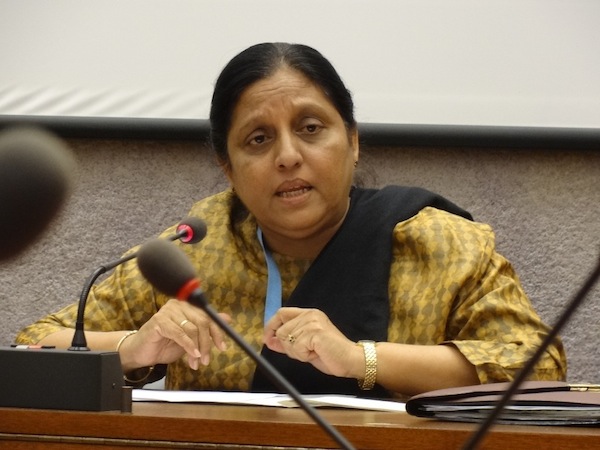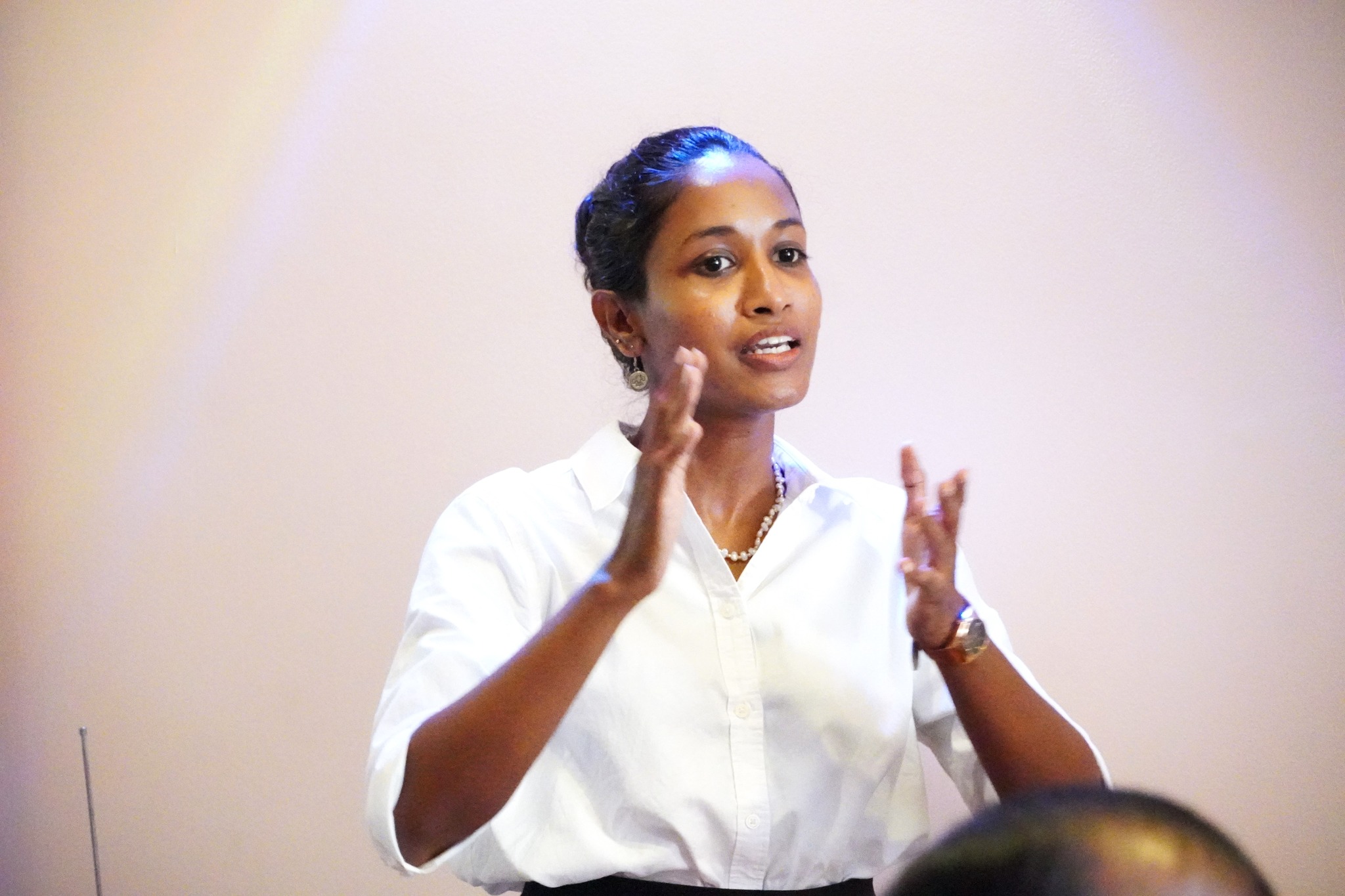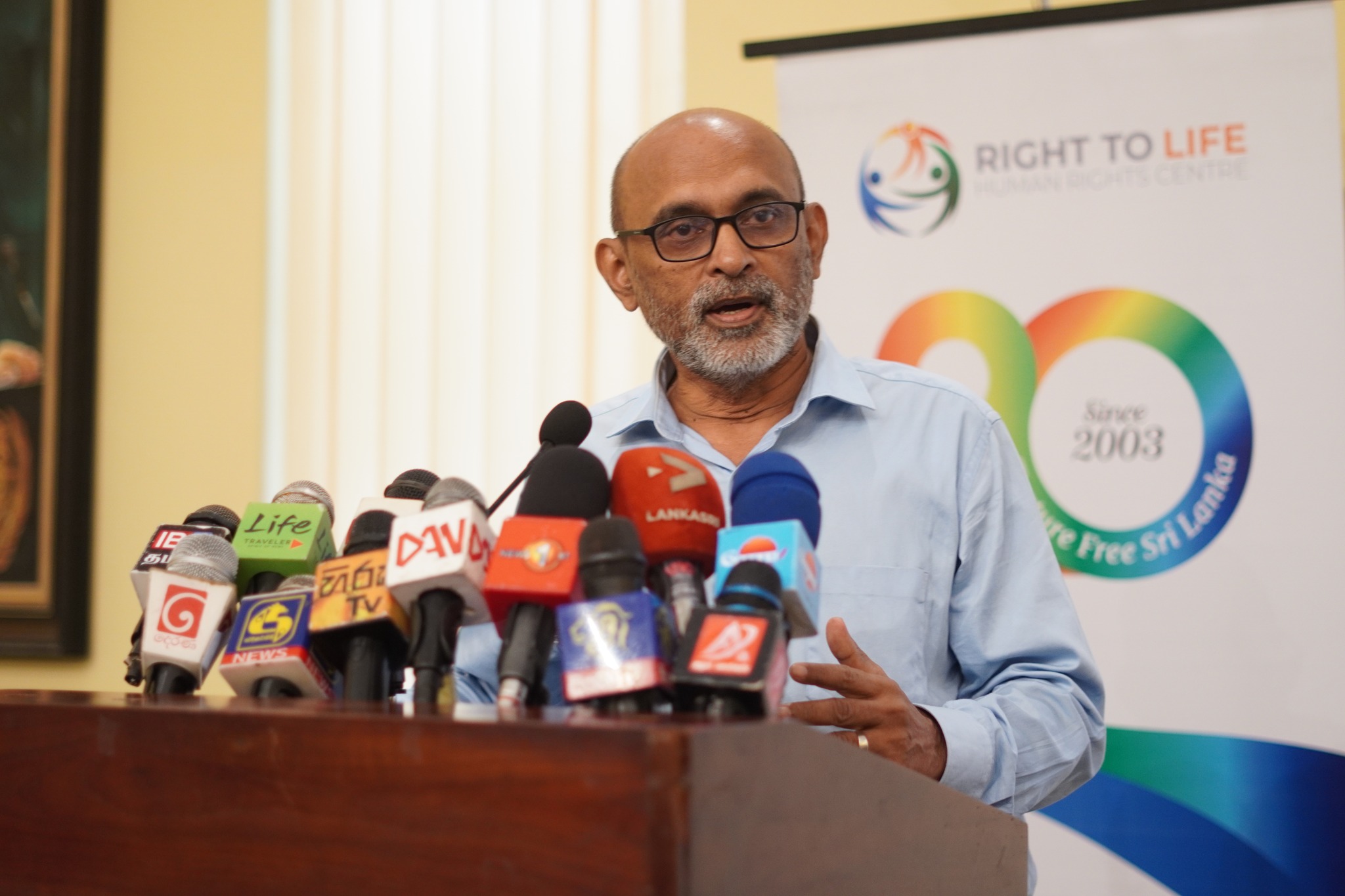During the 57th session of the United Nations Human Rights Council (UNHRC) in Geneva, Sri Lanka’s government formally rejected Resolution 57/1, which extends the mandates established in prior resolutions (notably 51/1) concerning human rights, accountability, and reconciliation in Sri Lanka. Resolution 57/1, adopted without a vote on October 9, 2024, requires the Office of the High Commissioner for Human Rights (OHCHR) to continue monitoring human rights in Sri Lanka, present an oral update in the next Council session, and provide a comprehensive progress report in 2025
Resolution 51/1, passed unanimously in October 2022, includes 19 elements. Under its eighth provision, the importance of gathering, preserving, and analyzing evidence related to human rights violations and associated crimes in Sri Lanka is emphasized. It extends and strengthens the authority to collect, verify, and analyze evidence, while member states are urged to support justice processes for victims and survivors of severe human rights abuses or breaches of international humanitarian law (Resolution 51/1 can be accessed here).
The statement from Sri Lanka’s Permanent Representative to the UN, Himalee Arunatilaka, at the 57th UN Human Rights Council session clarifies Sri Lanka’s firm opposition to both Resolution 51/1 and the earlier 46/1. These resolutions established an external evidence-gathering mechanism within the Office of the High Commissioner for Human Rights (OHCHR), which Sri Lanka contends infringes on its sovereignty and internal judicial processes. In document A/HRC/57/G/1, Sri Lanka outlines its disassociation from the High Commissioner’s report, arguing that Resolution 51/1 was passed without Sri Lanka’s consent and by a divided vote, indicating a lack of consensus.
Sri Lanka’s response emphasizes that the mechanism contradicts the UNHRC’s principles of impartiality, objectivity, and non-selectivity. Citing concerns about both sovereignty and budgetary implications of an ever-expanding mandate, Sri Lanka expressed that no sovereign state should be subject to an external system that preempts its constitutional processes. Despite rejecting the extension, Sri Lanka affirmed its commitment to meaningful engagement with the UNHRC and international human rights bodies, stating that it would continue to update the Council on its domestic progress in human rights and reconciliation efforts.
Despite rejecting the resolution, Sri Lanka’s government has pledged to maintain a cooperative and constructive relationship with the UNHRC and other international human rights bodies. The government also reiterated its plans to uphold commitments to core human rights treaties and the Universal Periodic Review (UPR) process, ensuring that the Council is kept informed on progress in reconciliation and human rights at the domestic level. This position aligns with the new administration’s vision, led by President Anura Kumara Dissanayake, to foster a political culture emphasizing transparency, rule of law, and internal accountability mechanisms
This stance has drawn mixed responses domestically. Some civil society leaders see it as an attempt to appease nationalist factions, while others express concerns about the government’s capacity to effectively address accountability issues without international oversight. The debate over whether domestic or international mechanisms are more suited to handling Sri Lanka’s post-conflict justice remains a crucial topic as the government embarks on this new chapter in its engagement with the UNHRC.
On October 8, the Cabinet, chaired by President Anura Kumara Dissanayake, rejected Resolution 57/1, opting to address human rights issues and reconciliation through domestic mechanisms rather than external interventions. Cabinet spokesperson, Minister Vijitha Herath, affirmed this stance:
“The government is committed to domestic processes for addressing core human rights concerns and reconciliation. We also affirm our cooperation with the UNHRC and its human rights mechanisms in a constructive dialogue.”
57th Session of the United Nations Human Rights Council
– Taking into account the matters submitted by the Minister of Foreign Affairs regarding the 57th Session of the United Nations Human Rights Council to be held in Geneva from 2024-09-09 to 2024-10-11, the concurrence of the Cabinet was granted to submit the stand of the Government of Sri Lanka as follows.
* That Sri Lanka strongly rejects the draft Resolution proposed in the current session of the United Nations Human Rights Council and that Sri Lanka continues to oppose the Human Rights Council Resolution 51/1 and does not agree with any Resolution which extends the mandate of the external evidence gathering mechanism.
* That, although the Resolution was rejected, Sri Lanka is firmly determined to deal with major human rights issues including reconciliation through domestic processes.
* That Sri Lanka engages in cooperation and constructive dialogue with the Human Rights Council and regular human rights mechanisms.
(Extracted from Parliament website)
Professor Nirmal Ranjith Devasiri, a historian at the University of Colombo and civil society activist, supported the government’s decision. He observed that had the government endorsed the resolution, it might have risked backlash from Sinhala nationalist factions opposing government reforms.
Reflecting on nationalist sentiments, Professor Devasiri remarked that Sinhala nationalist groups had gained traction after opposing the 1995 “package” proposed by the United People’s Freedom Alliance (UPFA) government to address Tamil demands. He warned that such actions could lead to a complex situation beyond the government’s expectations.
Devasiri advocates for a new approach to resolving the national issue, favouring a domestic approach to address human rights concerns. However, he questions how genuine the government’s intentions are in this regard, calling for immediate, practical steps to avoid an inflammatory atmosphere.
Human rights activist Sunanda Deshapriya commented on social media, stating that President Anura Kumara Dissanayake’s government is following the policies of former presidents Gotabaya Rajapaksa and Ranil Wickremesinghe.
Ambika Sathkunanathan, a former commissioner of the Sri Lanka Human Rights Commission, noted that Sri Lanka’s rejection of the resolution lacks validity as an official rejection without calling for a vote.
“Sri Lanka’s new government rejected the UN Human Rights Council resolution, just as the previous government did. However they did not ask for a vote in order for the resolution to be passed. Even if they had requested a vote, it appears that there were enough votes to extend the resolution. On the face of it, the government’s rejection does not create confidence amongst Tamils that the NPP, if they win a majority and form a government after the general elections, will address issues of accountability related to the violations committed during the armed conflict. Coupled with Vijitha Herath rejecting the provincial councils, which is minimal devolution of power, as a solution to the ethnic conflict and the NPP courting military, NPP’s rhetoric and action create grave concern about whether they will address critical issues related to the ethnic conflict. It could be that they rejected the resolution because they didn’t want to anger and lose their Sinhala Buddhist nationalist voters before the general election. And that is why they didn’t call for a vote. Whatever the reason, it is only after a new government is in place that we will be able to see how it deals with the resolution.,” Sathkunanathan noted.


